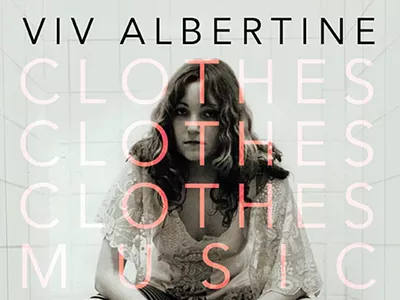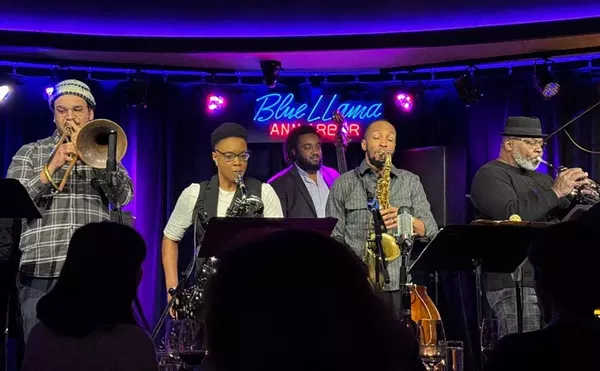Since music is one of Luc Sante's overarching obsessions, we thought it would be fun to go through his works and discuss what might be the ideal soundtrack for each.
Low Life
(FSG, 1991)
Low Life has obviously got to be (the song) "The Bowery." And why not throw in "Sidewalks of New York," since I couldn't find a decent vocal rendition of "The Bowery." Might also go with the Mills Brothers' version of "Chinatown My Chinatown." These are songs that went through my head continuously then. The book gave me a lasting appreciation for vaudeville.
Evidence
(FSG, 1992)
Evidence would be death songs. The first that comes to mind is Son House's "Death Letter," and the second is the Pentangle's "Cruel Sister."
The Factory of Facts
(Vintage, 1999)
For The Factory of Facts, which is about Belgium and my family, I have to find you ancestral Walloon songs, although their online representation is spotty; I couldn't locate a version of the trademark song of my home town, Verviers, for example. But I did find my grandfather's favorite number, "Lèyîz-m'plorer" ("Let Me Cry"), often heard in lugubrious settings but given an Everly Brothers treatment by the Frères Joiry.
Kill All Your Darlings
(Yeti, 2007)
Kill All Your Darlings is just lousy with music. A brief selection would have to include Bob Dylan's definitive live version of "Abandoned Love." Jelly Roll Morton's "I Thought I Heard Buddy Bolden Say" is obvious, as is King Solomon Hill's "The Gone Dead Train." And without wishing to be gluttonous I have to put in the Mekons' "Nocturne."
Félix Fénéon, Novels in Three Lines
(NYRB, 2007)
One day in 2005 or 2006 I was in Delamain, a 300-year-old bookstore on rue Saint-Honoré in Paris, a place I never miss visiting when I'm there, and had my eye caught by a small book, Félix Fénéon's Nouvelles en trois lignes (abridged by about two-thirds, as it turned out). I put it in my pocket and caught the long Metro ride up to La Chapelle, reading it along the way. I started to think that maybe I should translate it, since I didn't think anybody had done so yet. Then I arrived at a club called Glaz'Art, in a shed in the middle of freight yards, where they were having a dub festival and where that night's attraction was Jah Wobble. It was an epic performance, two and a half hours. Wobble and his power trio brought up one guest soloist after another, including a Breton bagpiper, an English singer, and a Laotian vocal ensemble on "Lam Tam Way Dub." An overwhelming swirl of music, all of it anchored by the deep bottom of Wobble & Co., certainly one of the best gigs I've seen in a few decades. Then I took the long Metro ride back and decided once and for all to translate the book.
Folk Photography
(Yeti, 2009)
Folk Photography, with its images of small-town America a century ago, pertains to that aspect of the national heritage that is classed as Old and Weird. Accordingly, (the ideal soundtrack would be) Buell Kazee doing "Lady Gay." And Washington Phillips singing "I Had a Good Mother and Father" never fails to make me cry.
The Other Paris
(FSG, 2015)
There wasn't a lot of music in the house when I was growing up. When we finally got a record player when I was 10, the only records my parents bought for themselves were a budget disk that had selections from South Pacific on one side and My Fair Lady on the other, and an anthology of classical warhorses (I played Scheherazade a lot). For his birthday at some point, a Belgian exile friend gave my father an Edith Piaf record. He pulled a long face when her back was turned, never played it. I usurped it before long, played it constantly, took it everywhere (until Nan Goldin swiped it for her slideshow in the early '80s). My father, who saw God knows what in the course of his life (I always sensed there was a lot he wouldn't tell me) had a deep-rooted aversion to anything "depressing" in the arts (which I guess didn't extend to books and movies about war). So I was left to discover French chanson on my own. The Other Paris gives them a fair amount of space, especially my two favorites, the rough-and-ready and bottomlessly yearning Fréhel, singing about the lost world of the Zone, and the oracular Damia in a setting of an 1880s anarchist poem about the guillotine.
Declare Present Time Over
(FSG, 2016)
Declare Present Time Over is all soundtrack. Music bleeds through the book; it almost needs an audio component. Here I'll restrict myself to the past: the Paragons' "Florence," the present: DNA's "Blonde Red Head," and the future: Laura Branigan's "Self Control."







